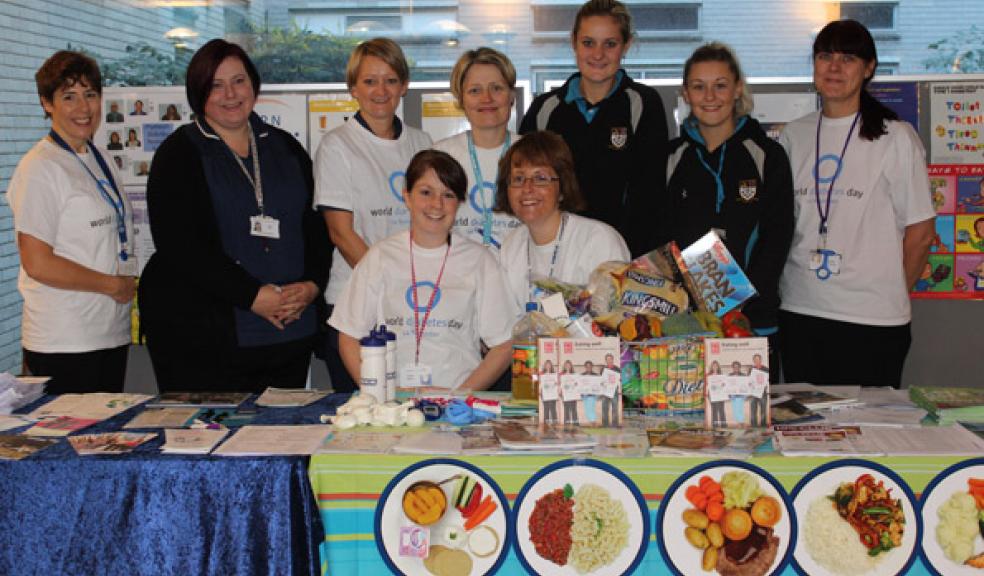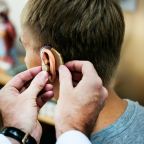
Specialist nurses offer advice on the prevention and early detection of diabetes
Specialist nurses from the Diabetes Centre at Derriford Hospital have been offering advice on the prevention and early detection of diabetes, on World Diabetes Day.
The nurses manned displays in the main concourse at Derriford Hospital and at Asda Superstore in Plymouth. They were joined by dieticians from the hospital, nurses from Research in Diabetes and third year students from the University of St Mark and St John (Marjon).
Lizzie Moore, Manager of the Diabetes Centre, explained: “To mark World Diabetes Day we held stands and were on hand to provide leaflets on the importance of healthy eating and lifestyles changes that could help in the prevention of diabetes. We were also on hand to discuss what the symptoms are, who might be at risk and why early detection is vital.
“We were really pleased that Alice and Katie from Marjon were able to join us. They were able to highlight different ways people can be physically active, to help with the prevention of the condition but also, for those who have a diabetes diagnosis, what they can do to improve their lifestyle.
Professor Ann Millward, Consultant in Diabetes and Endocrinology at Derriford Hospital, said: “World Diabetes Day really raises awareness of the problems of diabetes. It is a hidden disease but it is one that is becoming increasingly common. It is expected that 400 million people worldwide will have diabetes by 2030.
“In this country, three million people have been diagnosed with diabetes and we believe, a further 850,000 don’t know they have it. Some of the symptoms people should look out for are extreme tiredness, increased thirst, passing urine more often than usual and unexplained weight loss.
“It is also recognised that you are five times more likely to develop diabetes if you fall into one or more of the 'at risk' categories. These include: people over the age of 45, those who are overweight, people who are receiving treatment for high blood pressure or have a high cholesterol, those who may have gestational diabetes during pregnancy or who might have a family history of it.
“If diabetes is picked up early enough or if you are aware that you are at risk of it developing there is much you can do. The most important thing is regular exercise and eating sensibly. Research has shown that if you do this for two years, you can reduce your risk of developing diabetes by more than half.”
A study in Plymouth of 1,000 people found that 3.2% of them were likely to have diabetes and a further 10.6% were highly likely to develop diabetes over the next 10 years.











